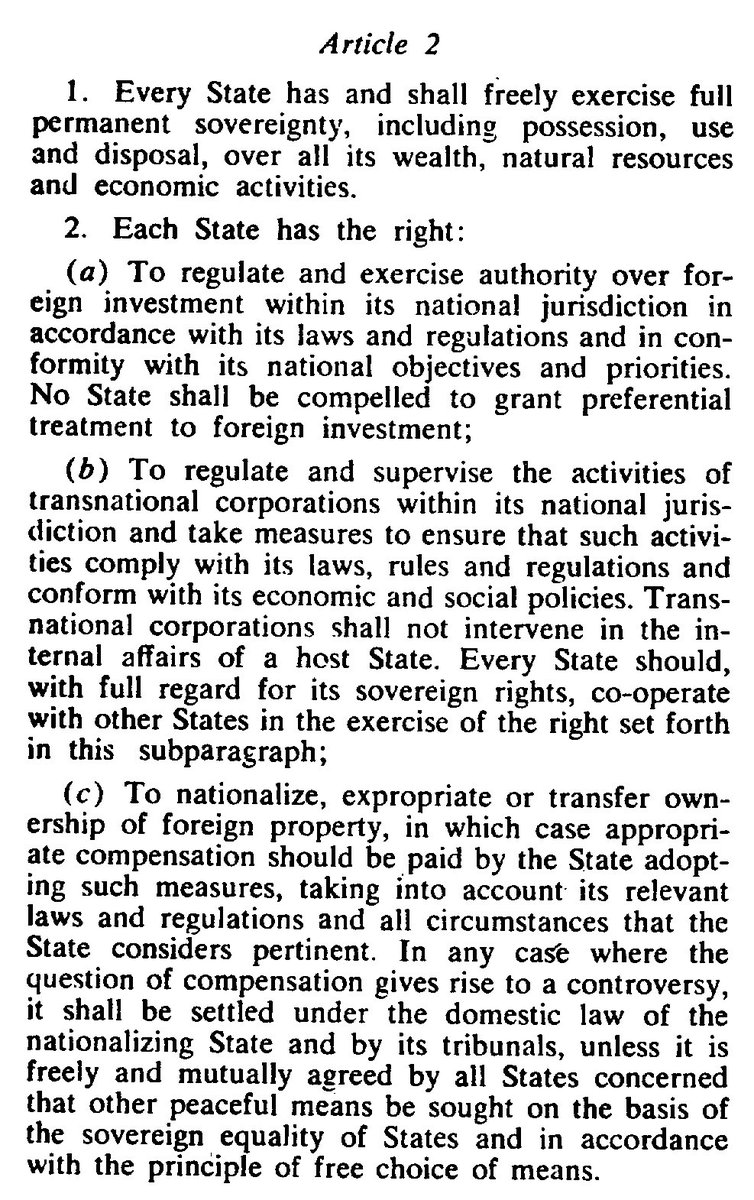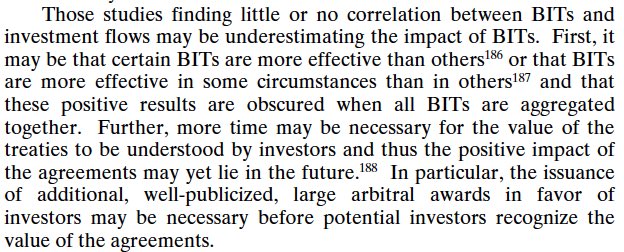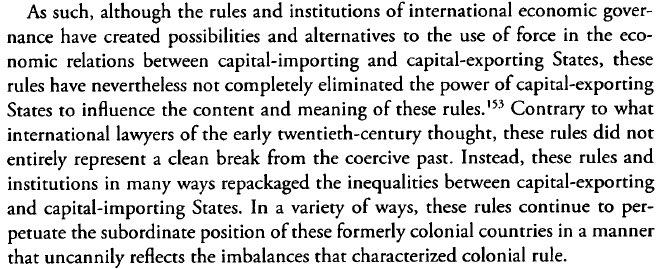Today in our investment law and policy seminar we took a pause to talk about the history and trajectory of investment treaties, an auspicious time to do so given the moves made at UNCITRAL last week. (See below from @AratoJulian). 1/ https://ielp.worldtradelaw.net/2021/02/isds-reform-from-the-forest-to-the-trees-of-an-appellate-mechanism.html
Everyone read Ken Vandevelde’s Brief History of BITs article ( @UCDavisLRev 2005), a great way to get the basic story. 2/
https://jilp.law.ucdavis.edu/issues/volume-12-1/van5.pdf
https://jilp.law.ucdavis.edu/issues/volume-12-1/van5.pdf
I opened in the 1700s with the Jay Treaty. (Jose Alvarez includes Alexander Hamilton's defense of the treaty as one of the first chapters in his "American Classics" in International Investment Law. I unfortunately didn't have time for Hamilton today.) 3/ https://brill.com/view/title/25589
Charles Lipson and Kate Miles have great books on the development of international property law among the European powers and its subsequent, sometimes violent encounters with the rest of the world. 4/ https://www.cambridge.org/core/books/origins-of-international-investment-law/1F455E3EABAB9AACC1EFF59F10F7D0EE#fndtn-information
This is why I was looking up newspaper articles from 1902 yesterday. We talked about the promise of international arbitration, its complicated relationship with military force, and the Drago doctrine. 5/ https://twitter.com/jbentonheath/status/1361780726648217600
The story proceeded in pretty standard terms from there: the ITO, FCNs, the Germany-Pakistan BIT, the NIEO, and the 1974 Charter on Economic Rights and Duties of States. 6/
A student presented on Texaco v. Libya & its analysis of UNGA resolutions. One suggestion was that this instinct that “you need a rule to replace a CIL rule” backfoots the former colonies, who were better placed to destabilize existing consensus than to generate a new one. 7/
One thing I like about Vandevelde’s work is that he is straightforward about the political nature of these projects. He makes the point forcefully that the US and others’ BIT programs were reactions to the NIEO. 8/
Vandevelde was also optimistic about the prospects of investment law in 2005, even after the backlash to Methanex & Metalclad, and the US policy shift evidenced by the 2004 model BIT. 9/
I emphasized, though, that KV’s paper was being finalized in 2005 just as the field was about to lose its mind. The Argentina decisions were coming, and with it perhaps a more sustained backlash. 10/
Still, observers were optimistic even a decade later. Here’s @dandrezner in 2014, noting promising new US BIT negotiations, including with China. (This is not to pick on Drezner, who published a great book in '14, but to emphasize how quickly the world changed.) 11/
We also discussed @JTGathii’s 2009 piece, War’s Legacy in IIL, which explores the same history. Gathii invites us to wrestle with this tension between aspirations for world peace and colonial violence—a violent legacy he argued was replayed in a new key in modern IIL. 12/
The student presenting the paper focused on something I highlighted yesterday: the anonymous USG official’s statement that arbitration is “cheaper than armies.” As the student pointed out, Gathii’s piece doesn’t disagree, but gives that statement a different meaning 13/ https://twitter.com/jbentonheath/status/1361780735808569346
What came out in the seminar—more strongly than I intended and with a lot of help from the students—was this tension between the ideal of pacific dispute settlement and the legacy of coercion and exploitation. It’s interesting to replay these themes given today’s discussions 14/
This great post from @AntheaERoberts @taylor__stjohn suggests that the states gathered at UNCITRAL might be close to “crossing a chasm”—moving from the early-stage entrepreneurship of institutional reforms to actual drafting of text. It’s potentially a big step. 15/
But wherever you are re: this chasm—“visionary,” “pragmatist,” or “laggard”—the UNCITRAL project is just not about these deeper issues. Maybe today the chasm is between the reformers in foreign offices and those whose lives are impacted (for good or ill) by investment. 16/END

 Read on Twitter
Read on Twitter






